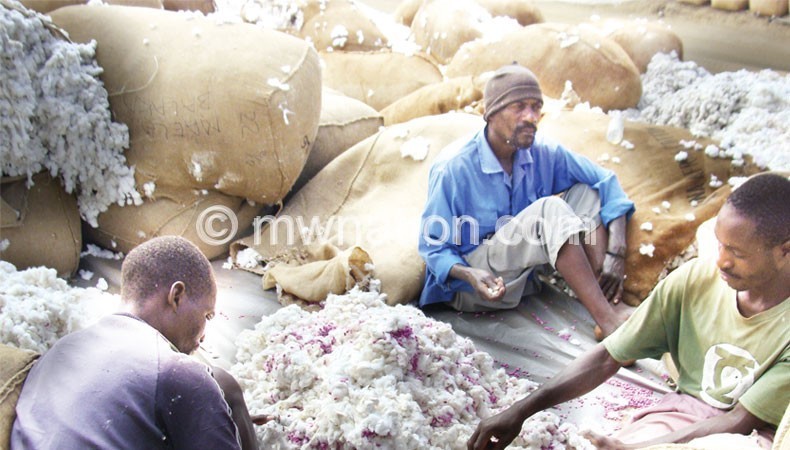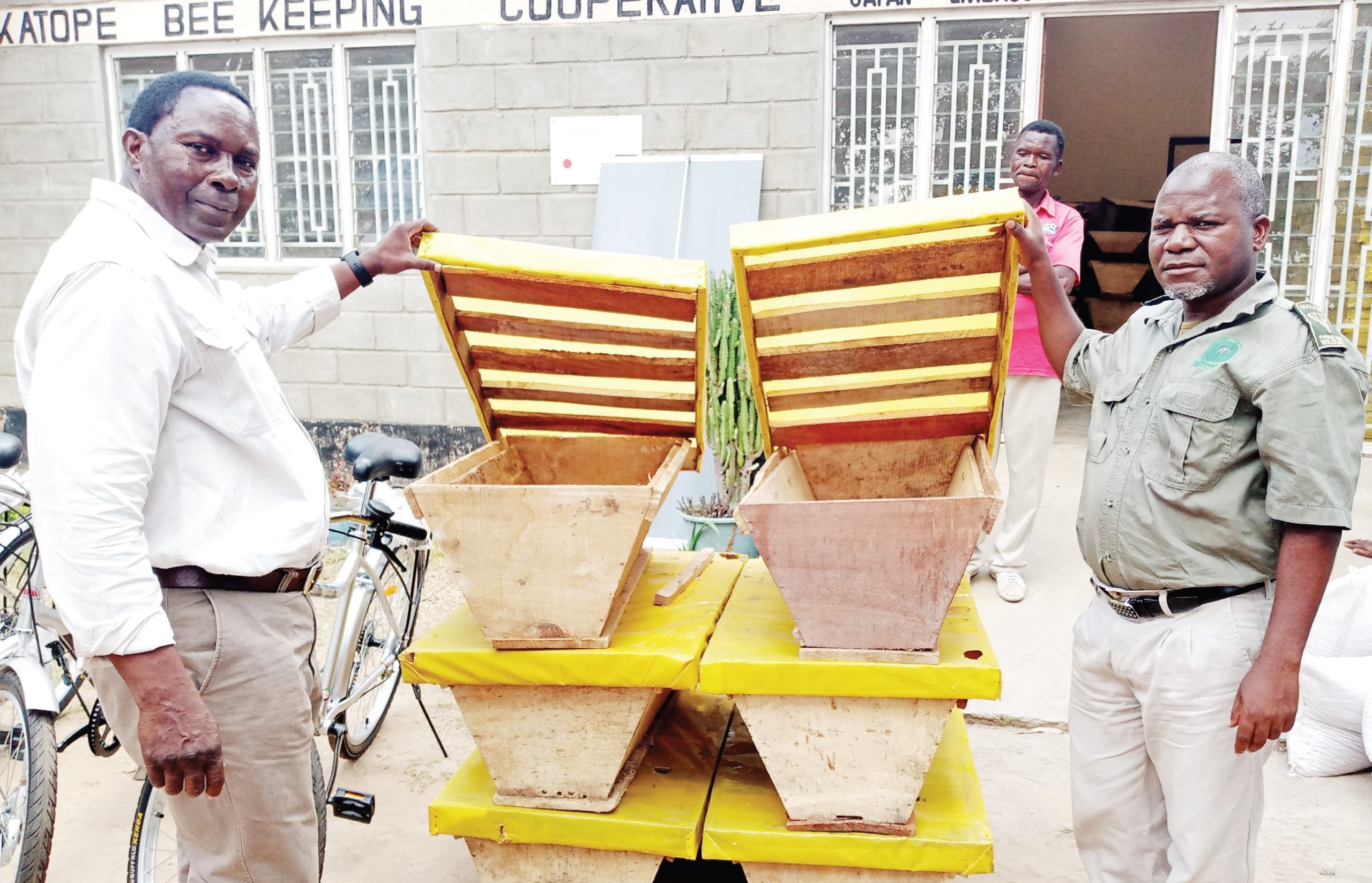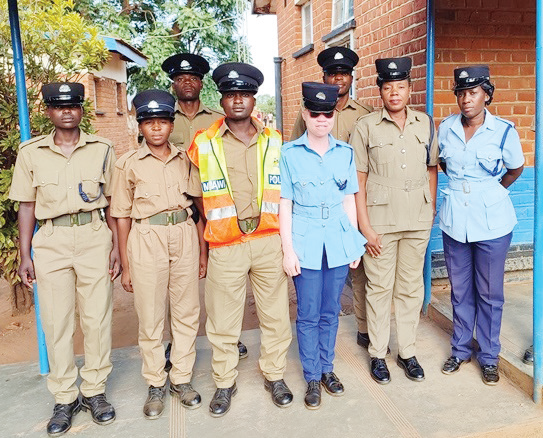Inside Malawi’s GMO laws and regulations
As we continue debating on GMOs in Malawi, EPHRAIM NYONDO looks critically at some of the provisions that regulate the production, use and marketing of GMOs in Malawi.
One of the major criticisms against Africa’s adoption of genetically modified organisms (GMOs), popularly referred to as GM crops, is that the continent does not have strong regulations and enforcement capacity to monitor the processes.
In Malawi, the GMOs arguments have been defined by two crops. One, the release of Bt Cotton—which has already undergone two successful confined trials at Lilongwe University of Agriculture and Natural Resources (Luanar). And two, the recent application by Luanar for confined trials of Bt Cow pea.
For instance, in their submission on the application for general release Bt Cotton, the Centre for Environmental Policy and Advocacy (Cepa) firstly observed that cotton is the most vulnerable crop to insects and disease attacks.
As such, they added, the crop requires considerable outlays in terms of pesticides and insecticides which have a bearing on productivity and incomes that farmers can expect from the crop.
“A cotton variety that can reduce pesticides attacks will, therefore, have an advantage and therefore, worth considering for release. In relation to MON 15985 the call for comments specifically states that MON 15985 confers protection of cotton plants to a specific range of Lepidopteran insect pests,” reads the paper.
However, Cepa observed that the application of the general release does not use data from Malawi field trials as required by the Bio Safety Act and the Regulations made thereunder.
“In addition, the application uses the principle of substantial equivalence which does not exist under Malawi policy and legislation on Bio Safety and Biotechnology. The Bio Safety (Management of Genetically Modified Organisms) Regulations 2007 also require that in conducting risk assessment, use should be made of the precautionary principle; the application, however, has not addressed this principle,” reads the statement.
Hence, they recommend that the application is incomplete in that it does not use data from Malawi field trials and does not refer to any reports from monitoring the trials.
“The use of substantial equivalence as a ground for risk management does not exist in Malawi and should, therefore, be removed from the application.
“Instead the application should use what Malawi policy and legislation provides such as the precautionary principle.
“Further, the application needs to evaluate the socio-economic impacts of the use of Bt cotton in Malawi, especially as it affects small-scale cotton farmers that are in majority in Malawi. In the light of these very glaring omissions, we submit that the application should be rejected,” reads the statement.
It is not just Cepa. There are many NGOs that have been pointing out a number of issues that needs to be addressed first before Malawi goes full throttle with GMOs.
But does this suggest Malawi does not have strong GMO laws or, perhaps, it is a question of failure to enforce them?
Malawi, after the GM food aid experience in 2001, has developed various legislations to meet the challenge of meeting bio safety.
For example, Malawi is a party to the Convention on Biological Diversity and ratified the Cartagena Protocol on Bio Safety in 2009. The convention addresses all aspects of biodiversity including fair and equitable sharing of benefits derived from biotechnology, protection of traditional access to genetic resources and safety of activities relating to modified living organisms.
In accordance with the Convection, Malawi, like other member States, is required to put in place an appropriate legal and policy framework before adopting biotechnology.
In response, Malawi came up with regulatory frameworks namely: the Bio Safety Act in 2002, the Bio Safety (Genetically Modified Organisms) Regulations in 2007 and the National Biotechnology and Bio Safety Policy in 2008.
Experts argue that the Bio Safety Act was enacted to provide for the safe management of biotechnological activities. The minister responsible for environment is the one given the power to administer the Act.
The Bio Safety (Genetically Modified Organisms) Regulations 2007, on the other hand, provides for the effective implementation of the Act. It is administered by the Minister responsible for Environment through the National Bio Safety Regulatory Committee.
The National Bio Safety Regulatory Committee (NBRC) is responsible for evaluating all applications concerning or related to genetically modified organisms and products and making recommendations to the Minister; advising the Minister on matters concerning genetic modification of organisms including; all aspects relating to the introduction of GMOs in to the environment, proposals for specific activities or projects concerning GMOs, all aspects of confined field trials, import and export of GMOs and amendments or withdrawals of licenses and permits issued
Then there the National Biotechnology and Bio Safety Policy of 2008 which provides a framework for effective implementation of biotechnology programmes and activities in Malawi. Its goal is to attain sustainable socio-economic development through research, acquisition and use of traditional and modern biotechnology.
The objectives of the policy is summarised as follows: Build and strengthen national capacity in biotechnology research, development and application; promote the utilisation of biotechnology products and processes as tools for national development; provide a regulatory and institutional framework for safe utilisation and sustainable biotechnology development and application; and promote ethical standards in biotechnology research and development.
There is also the office of the Bio Safety Registrar. The office, which is under the Environmental Affairs Department (EAD), registers and reviews applications for completeness then convenes a meeting of the NBRC.
Currently, after undergoing the two confined trial, Bt Cotton seed is still with the office of the Bio Safety Registrar.
During the last interview with the Weekend Nation, the Registrar’s office indicated that they are yet to convene a meeting of the NBRC to decide the release of Bt Cotton.
The question is: When will they meet to discuss the future of Bt Cotton in Malawi?





